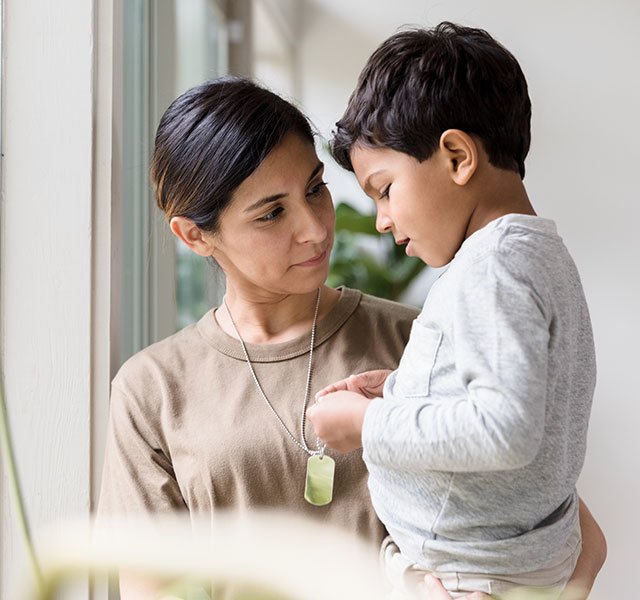Making sense of the world today is challenging, even for adults. With ongoing COVID concerns, global unrest and violence in the news, kids may feel more confused than ever.
"Kids have big emotions and they often don't know what to do with them," says Marcia Phillips, LCSW, a licensed clinical social worker at Henry Ford Health. "They're younger, smaller and their brains aren't fully developed." So where does that leave parents? At the center of every important discussion.
Breaking The Ice On Tough Topics
Talking about sensitive subjects like sex, violence, racism and divorce can be uncomfortable. But the alternative — letting your child come up with their own narrative about complex issues — isn't healthy. Here are four strategies to help you tackle tough topics:
- Keep the door wide open: You want your children to view you as an ally in their quest to better understand the world, not someone who will judge them for their questions or concerns. "Once your kids reach their teen years, there are topics they will undoubtedly hear about — sex, drinking and drugs, and violence top the list," Phillips says. "By opening the lines of communication, you're teaching them the narrative you want them to have, with the understanding that they will ultimately make their own decisions."
- Check yourself: If you're anxious, stressed and overwhelmed, your child is likely to pick up on that. "It's important for parents to name these emotions," Phillips says. "We need to normalize uncomfortable emotions with our children." So instead of saying you’re fine, check in with your emotions and explain how you really feel. If you tell your children that you're sad, frustrated and scared, you're actually teaching them 'feeling' words, and that's important for their development.
- Listen for cues: Phrases like “I’m scared," "I don't understand why," or even just "why?" are clues that your child is curious about something. By listening closely, you can sometimes uncover important details to help you address your child's concerns at an age appropriate level. "Don't just wipe away the tears," Phillips says. "Use them as an opportunity to learn more about what your child is experiencing."
- Be honest: The things that embarrass you most are often the things that most need to be discussed. Be honest with your children. You can even tell them that you're uncomfortable having the conversation, and forge ahead anyway. “In every instance, approaching the situation with honesty and vulnerability is key,” Phillips says. Don't have an answer to the questions your child is asking? Phillips offers reassurance that it's okay to say you don't know, especially for hard to answer things like "When will the pandemic be over?"
Intentional Parenting
Dismissing your child's questions and concerns can lead to big problems and unresolved emotions down the line. A better bet: Be intentional about your parenting.
"It's important to understand that we can control the narrative our children receive, but only if we have the conversation," Phillips says. "You want your voice to be louder than the rest of the world — and you want your kids to understand that they can discuss anything with you."
Create an environment where your children feel safe sharing their experiences and asking questions. Invite your kid to hop on the couch to have a discussion after watching a thought-provoking movie or play a card game that requires each family member to respond to specific "big life" questions.
Most important, pay attention to the following signs that could indicate your child is suffering from depression or anxiety:
- Changes in eating patterns
- Changes in sleeping patterns
- Frequent tummy aches
- Not wanting to do or enjoy doing fun things
- Changes in energy – being tired and sluggish or tense and restless a lot of the time
- Showing self-injurious and self-destructive behavior
Talk with your child's doctor or a school psychologist or social worker about resources to help if you have concerns.
To find a doctor at Henry Ford, visit henryford.com or call 1-800-HENRYFORD (436-7936).
Marcia Phillips is a behavioral health therapist and licensed clinical social worker who sees patients at Henry Ford Medical Center - Ford Road and at One Ford Place in Detroit.



